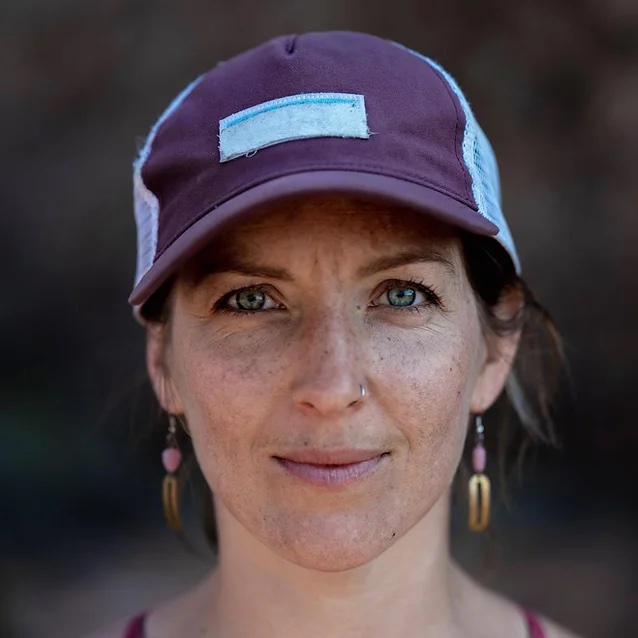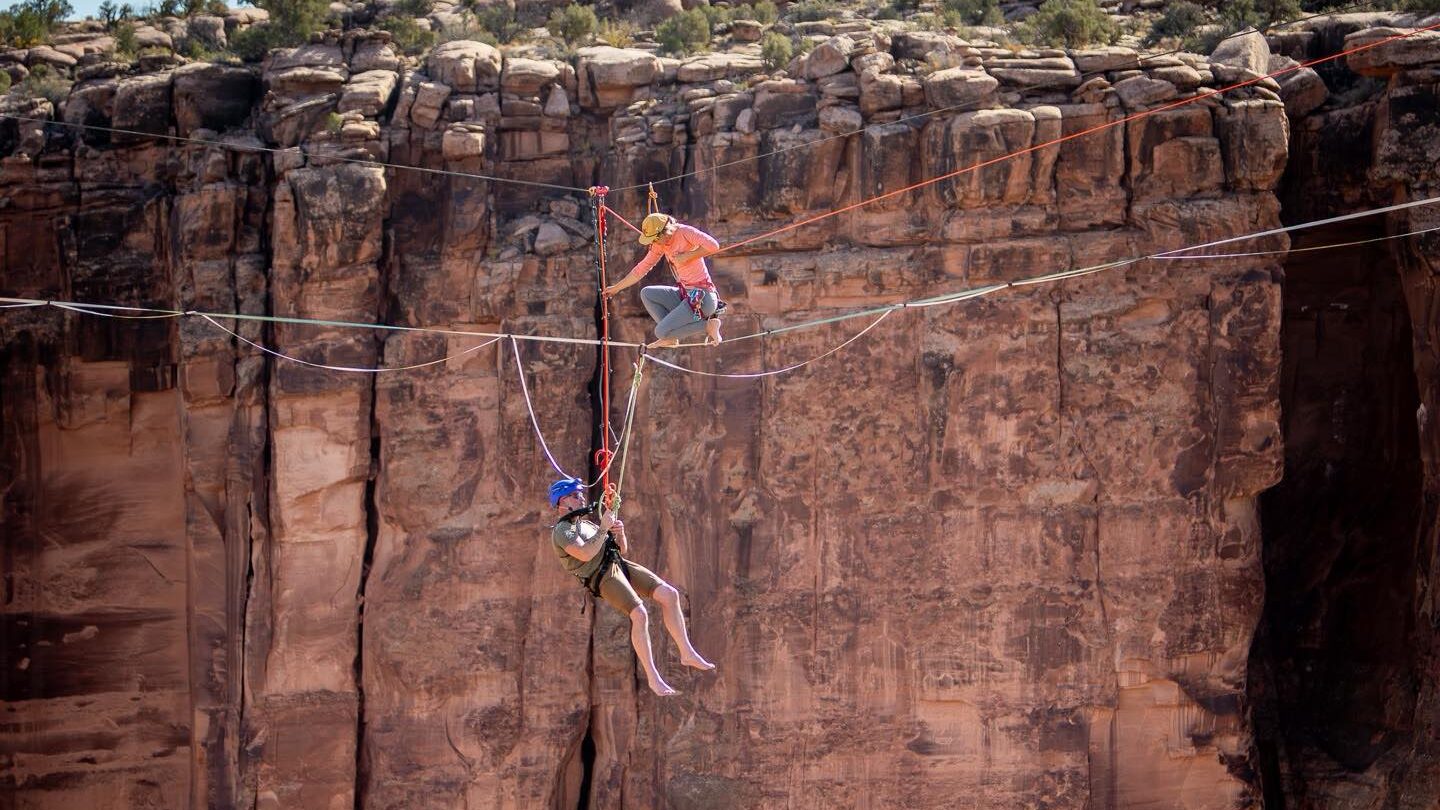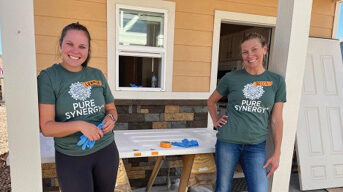Some information may be outdated.
A piece of webbing runs from cliff to cliff over a chasm near Moab, stretched taut over a drop of hundreds of feet. On one side, a woman puts her foot on the thin line and begins the walk to the other side, relying on focus and balance to overcome the wind, the swaying of the line and the thought of the void below.
Moab resident Faith Dickey has been a professional highliner for 14 years. During that time, she racked up 15 world records, ran a women’s highline festival in the Czech Republic, and has been featured on Discovery, Travel Channel, National Geographic, Netflix and CNN.
After more than a decade as a professional athlete, she is taking on a new challenge: starting her own guiding business, the first in the U.S. to offer guiding for highlining.
“As an athlete, I’ve run myself as a business, so to speak,” Dickey said in a conversation with the Moab Sun News. “But this is the first time I’m, like, really launching into, like, a full-blown business.”
Being a professional athlete has its drawbacks and challenges as people get older, suffer injury, and get burnt out, Dickey said. After years of hauling heavy bags of webbing and rope and straining to stand on a highline, she said her knees were “basically destroyed.”
“I didn’t think that I was identified with my achievements, really,” she said. “But then, when I was injured and couldn’t be at the top anymore, I felt really worthless.”
Thinking about beginning a new chapter in her life became a crisis, she said, until two women reached out to her on Facebook and asked if she could guide them highlining.
“I wasn’t advertising at all,” Dickey said. “And I wasn’t really guiding, but this was like a light bulb moment: of course this is what I should be doing!”

To help people who may not be active in the slackline or highline community learn the ropes, Dickey uses large custom tripods to anchor a rope stretched above the walkers. A harness and safety leash is attached, preventing the walkers from falling below the rope if they lose their balance.
“I love offering this to people who wanted to try highlining, but want to try it with someone who’s insured and knows what they’re doing and who’s going to keep them safe and teach them some useful skills,” she said.
Now Dickey has launched her business, Elevate Outdoors Guiding, to offer guided climbing, canyoneering, and highlining. Dickey’s business being the first of its kind is a challenge itself; it took two years to secure reasonable business insurance.

“Highlining is actually safer than climbing, but you can imagine trying to explain that to a person working in an insurance office who has never heard of this,” she said.
She hopes to not only serve the tourism sector of the Moab economy but also provide services that locals would be inclined to use as well, via local discounts, skills classes, and winter specials.
“There are so many skills that I’ve learned for this that are useful and empowering,” she said. “I want to fill that niche in this part of the world.”
Dickey imagines teaching clinics for women interested in rigging, the process of anchoring and tensioning a line. Rigging is a crucial aspect of slacklining and highlining and requires careful attention to detail and a thorough understanding of the equipment and techniques involved.
“There’s not a lot of women doing that in the highline world, which is really rigging intensive,” she said. Dickey said that at one certification course, she was the only woman in attendance.
She’s hoping that she can use her hard-won skills to hold courses to teach local climbers self-rescue techniques, provide rigging for the film industry, and more.
“I know a lot, but there’s still so much more I can learn as well,” she said. “I’m teaching what I already know. And as I’m expanding my own knowledge, I’ll keep increasing the things I can offer.”
Being on a highline forces you to interact with your ego, with the voices in your head that can be full of self-doubt or grandiose dreams, Dickey said. Either extreme is not good; they don’t help you stay balanced. It’s normal to be nervous, but Dickey helps her clients move forward even with uncertainty.
“You’re standing in the void. And it’s like a place we never really get to be,” she said.
Dickey went through the low of not knowing what to do with herself, not knowing how to transition out of seeing herself as simply an athlete. Now, she’s stepping out into a new challenge, a new void, and finding her balance.
“It just feels really good to be passionate about something,” she said. “I don’t have to be the best in the world; I know that I already have the knowledge and experience to teach people valuable things.
For more information on Faith Dickey and Elevate Outdoors, go to elevateoutdoorsguiding.com.
Appreciate the coverage? Help keep local news alive.
Chip in to support the Moab Sun News.





